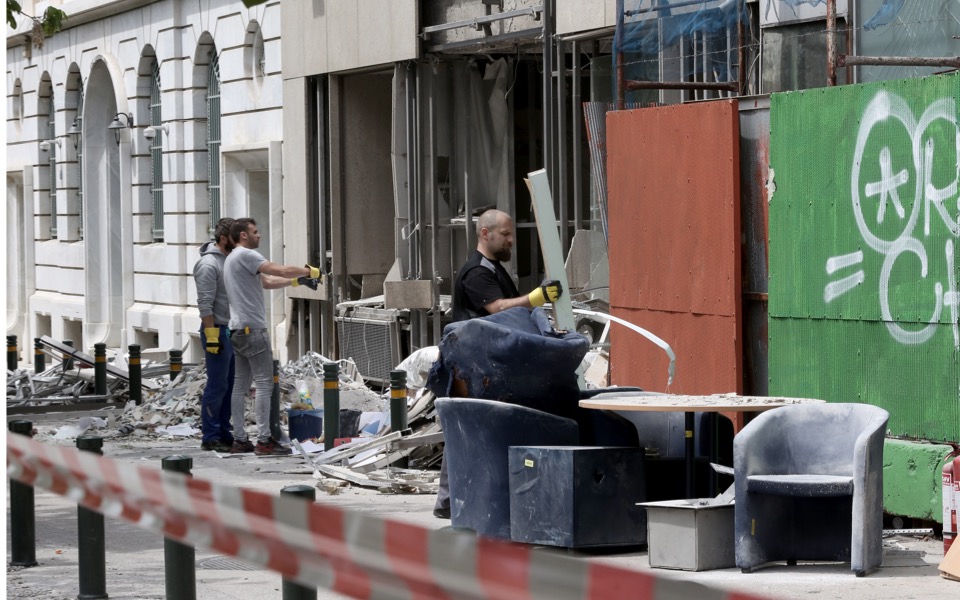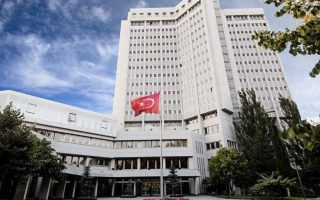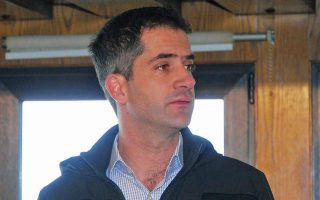Left-wing terrorism still active in Greece, Europol report finds

Greece, and to a lesser extent Italy and Spain, are the only countries in the European Union still facing the threat of left-wing violence, Europol said in its annual “Terrorism Situation and Trend” (TESAT) report.
According to Europe’s law enforcement agency, “left-wing and anarchist terrorist groups and individuals continued to have enhanced operational capabilities and access to military-grade weapons” in Greece in 2017, during which a total of eight attacks were carried out.
Those eight attacks account for a third of a total of 24 left-wing attributed attacks in the EU last year – a downward shift from a sharp spike to 27 attacks in 2016 from 13 the year before that.
The Greek urban guerrilla group Conspiracy of the Cells of Fire was also behind a letter-bomb campaign against foreign targets in 2017 that resulted in the injury of an employee at the Paris office of the International Monetary Fund. Another explosive-packed parcel addressed to Germany’s then finance minister, Wolfgang Schaeuble, was intercepted in Berlin, Europol notes, noting that a similar parcel bomb was responsible for seriously injuring Greece’s former prime minister Lucas Papademos.
The TESAT report makes reference to two more left-wing terror groups active in Greece: Revolutionary Self-Defense Organization and Group of Popular Fighters.
The former, it explained, carried out two identical attacks in 2017, shooting at police officers guarding the offices of the PASOK party in Exarchia, downtown Athens, though without causing injury. The latter planted makeshift bombs in central Athens, at the offices of Eurobank and the Court of Appeals.
Europol went on to say that a total of 36 suspects were arrested in the EU in 2017 in connection with left-wing terrorism. Of those, 12 were in Greece – and nine of them were Turkish nationals suspected of membership in the Revolutionary People’s Liberation Party-Front (DHKP-C).
Those arrests, according to the European police, are an indication that DHKP-C members “maintained a fixed structure on EU soil that provides logistical and financial support for terrorist activities in Turkey.”
In Greece, as in Italy, the report said, “the anarchist extremist milieu is considered to be an antechamber to terrorism, in the sense that it provides fertile ground for radicalization and recruitment.”
Moreover, the report said, while groups in Greece and Italy continued to claim they comprise an international network they call Informal Anarchist Federation (FAI), “there appears to be no operational cooperation or coordination other than the exchange of solidarity messages via a number of anarchist websites.”





